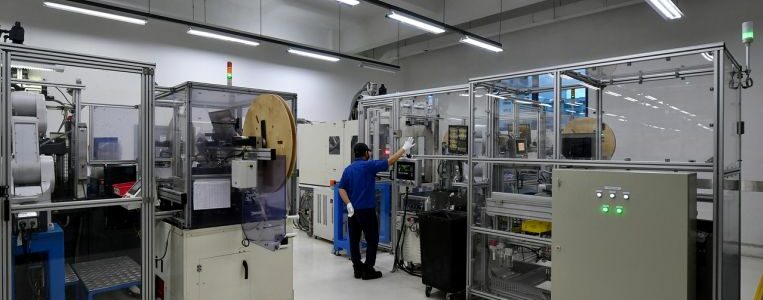
Singapore factory output expands for sixth straight month in April
SINGAPORE – Singapore’s manufacturing output continued its upward trend for the sixth straight month in April, supported by strong performance in the precision engineering and chemicals clusters and helped by a low base.
Production increased 2.1 per cent year on year, according to data released by the Singapore Economic Development Board (EDB) on Tuesday (March 25).
This was lower than the 3.5 per cent growth forecast by economists in a Bloomberg poll and the 7.6 per cent year on year expansion seen in March.
Excluding biomedical manufacturing, output in April expanded 11.1 per cent due in part to a low base from circuit breaker measures a year ago.
On a month-on-month seasonally adjusted basis, overall factory output increased 1 per cent. However, excluding the volatile biomedical manufacturing segment, output declined 0.6 per cent.
The precision engineering cluster was a key driver of growth, increasing 20.4 per cent year on year in April, supported by higher production of semiconductor equipment due to strong capital investment in the global chips industry.
Chemicals production rose 14.4 per cent year on year, with expansion in the petrochemicals and specialties segment outweighing the decline seen in the other chemicals and petroleum segments.
Electronics output also expanded 6.1 per cent in April, with all segments recording higher levels of production.
Transport engineering saw growth in April from a low base a year ago, with the land and aerospace segments rising. However, continued low activity in the shipyards weighed down on the marine and offshore engineering segment, which contracted 5.9 per cent year on year. On a year-to-date basis, the transport engineering cluster fell 13.2 per cent compared to the same four-month period in 2020.
A low base last year due to circuit breaker measures also contributed to the 18 per cent rise in general manufacturing output in April. A gradual pickup in domestic demand for construction-related products also contributed to the expansion in miscellaneous industries production.
However, the biomedical manufacturing cluster declined by 22.7 per cent from a year ago despite growth in the medical technology segment due to higher export demand for medical devices. The pharmaceuticals segment declined 24.7 per cent due to demand for a different mix of active pharmaceutical ingredients, EDB said.
Join ST’s Telegram channel here and get the latest breaking news delivered to you.
Source: Read Full Article